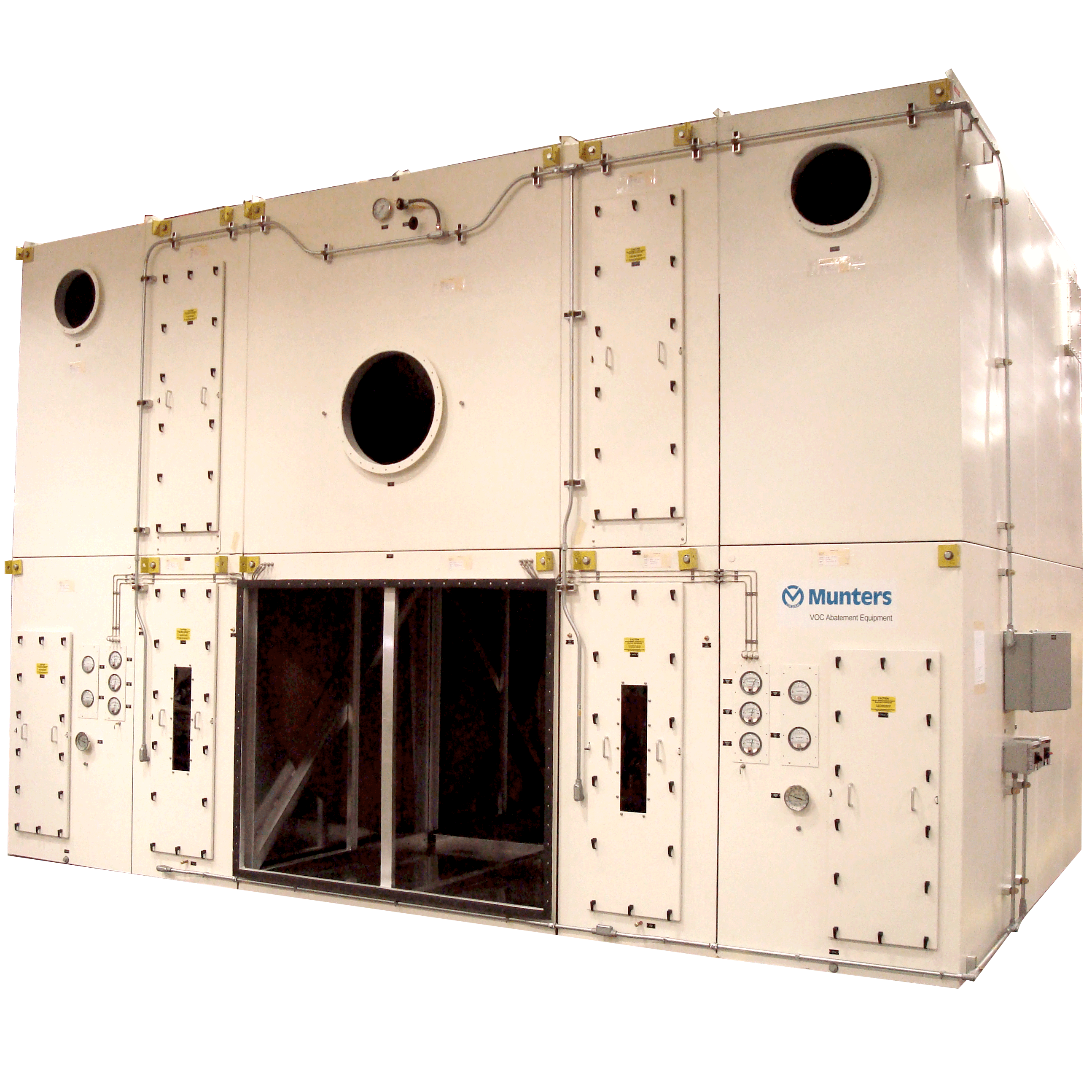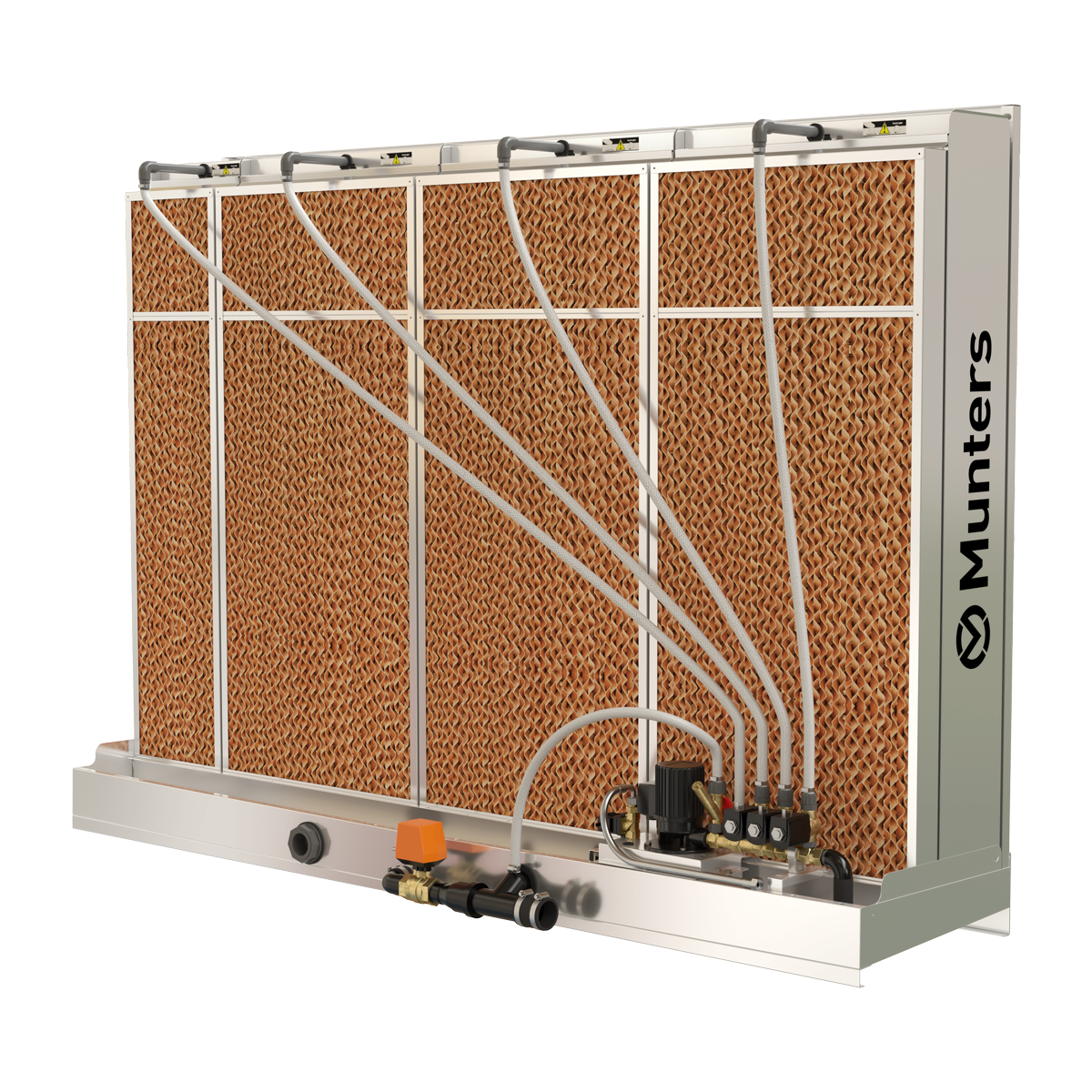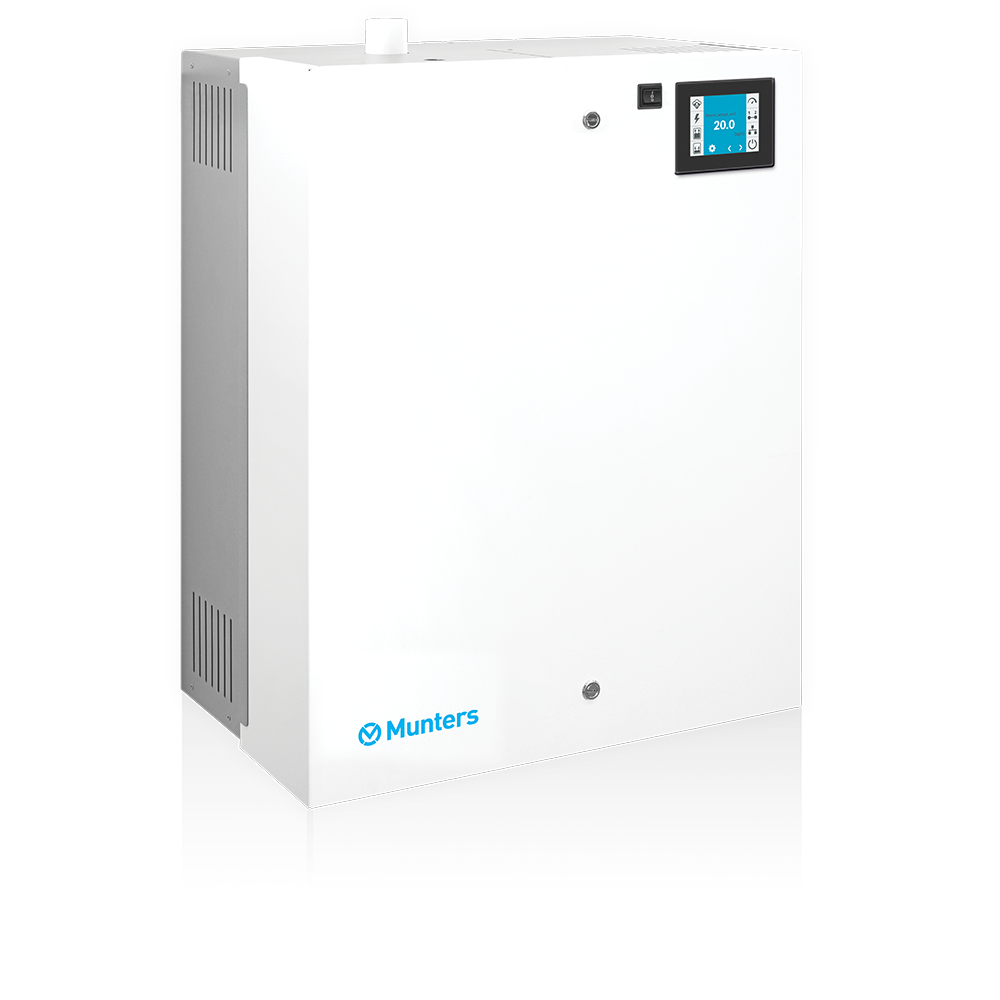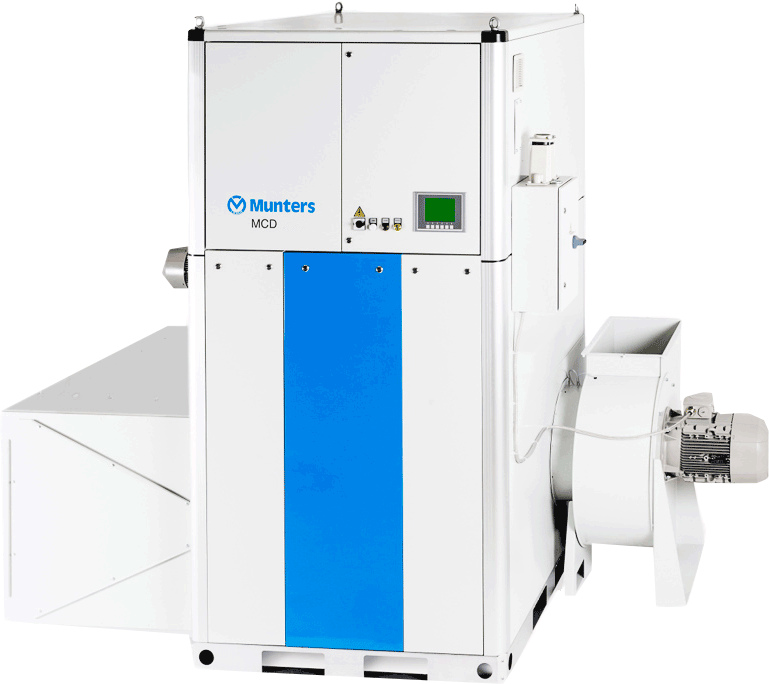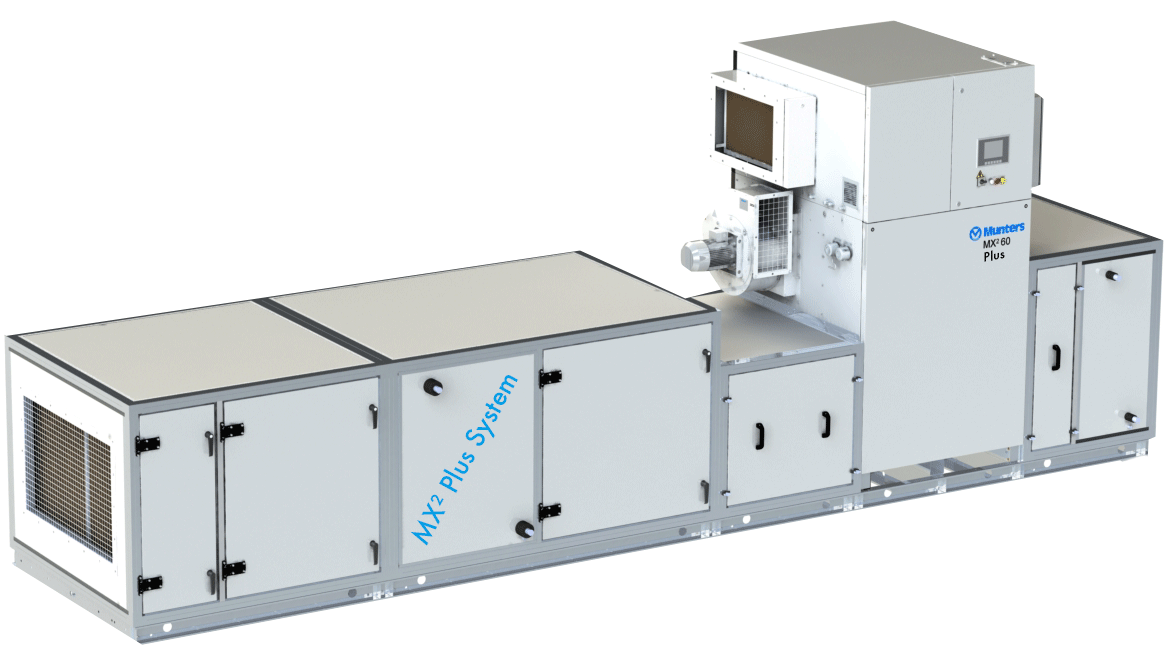Optimizing egg production

Digital tracking and monitoring in layer hen houses promote improved egg production, reduced waste, increased efficiency and enhanced flock health management. Monitoring and analyzing real-time data on egg production, feed and water consumption, temperature and humidity helps optimize operations and enables informed decision-making, which results in increased profitability and improved flock welfare.
Want to talk with an expert?
Get in touch with our team.

The key to maximizing layer hen performance
Munters Rotem ONE controller offers real-time monitoring and control for layer hen environments.
Algorithms and predictive modeling allow for precise and automated adjustments to temperature, humidity, air quality, and lighting to optimize living conditions. This leads to increased egg production, improved feed conversion, and reduced stress levels.

Streamlining egg collection and grading
In large layer facility egg processing can be a time-consuming, labor-intensive business. That's why it is so important to have a well-organized egg collection and grading system in place.
A digital egg counter is a crucial component in ensuring the efficiency of egg collection and grading. By accurately counting and tracking the number of eggs collected, it enables better record and real-time insight, detecting production differences and responding quickly to failures and disease. The digital system also streamlines the egg collection process, making it more efficient and reducing the chance of errors.

Efficiently monitor hen costs, feed conversion, and egg quality with Amino
Take control of your operations by tracking cost per hen, feed conversion, egg size, and quality by house. With Amino's advanced features, you can forecast production, and compare each feeding factor to KPIs in egg production. Stay informed and optimize your processes with Amino from MTech Systems.

Feed Conversion Rate (FCR) for layer hens
Farmers’ animal feed costs comprise 60-70% of the overall producer expenditures. These producer costs are impacted by climate control performance through the feed conversion rate (FCR). An explicit correlation exists between maintaining the correct environmental indoor conditions to prevent temperature fluctuations and optimized FCR.




